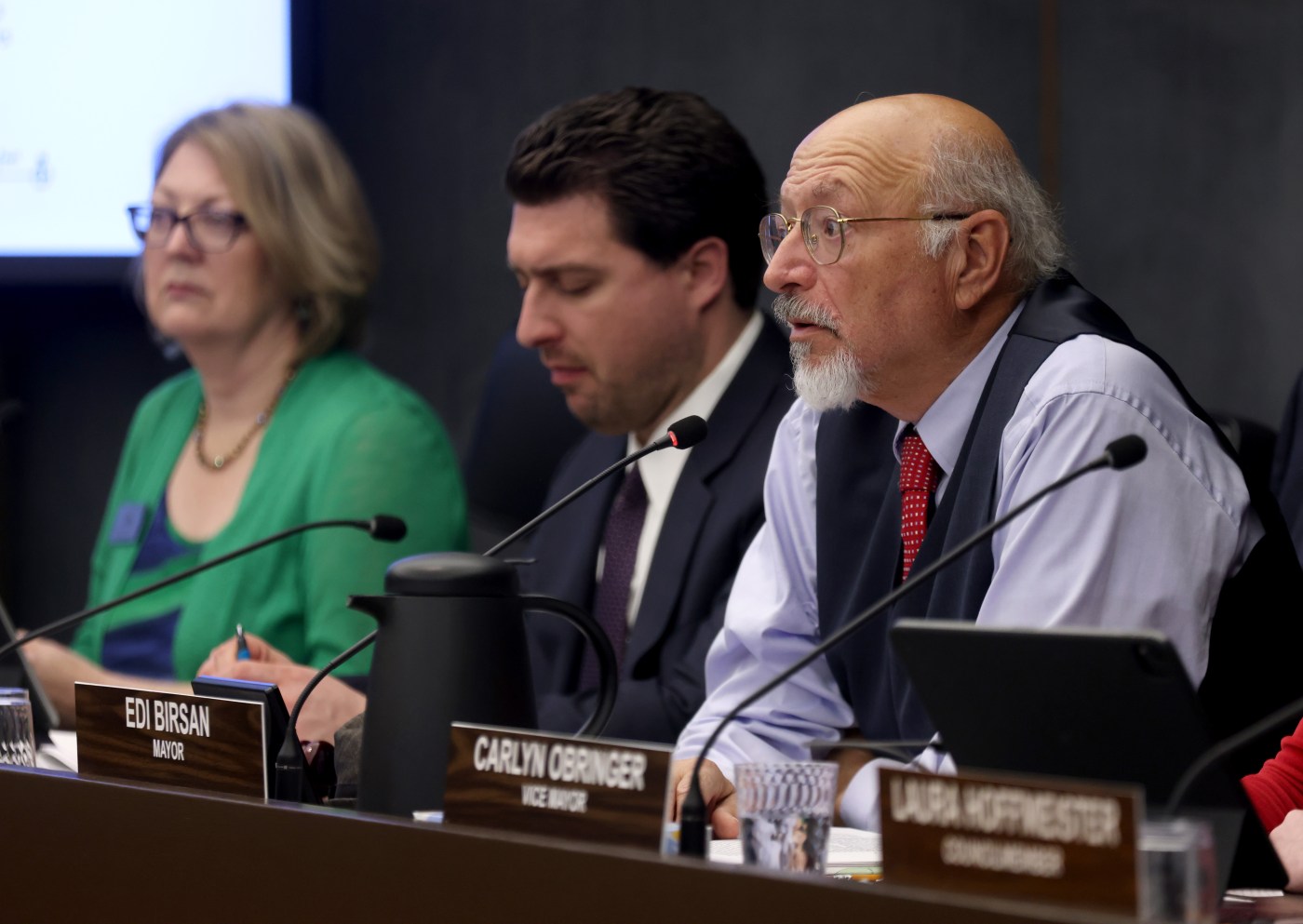At a public hearing last month, a real estate developer approached the Concord City Council with a proposal that, to many, might have seemed too good to turn down: 183 new downtown apartments, nearly all affordable, at no cost to the city.
All the developer asked of the council? Permission to accept up to $90 million in state financing to cover construction costs.
But a 4-1 majority of councilmembers rejected the request, reasoning the project would concentrate too much affordable housing in the suburban East Bay city’s central business district. Instead, they encouraged Idaho-based Pacific West Communities to build the complex as mostly market-rate apartments, which wouldn’t receive subsidies.
“I’m not helping my community by shoving all affordable housing in one single location,” Councilman Dominic Aliano said before voting down the financing request.
In explaining their decision, which could effectively kill the project, councilmembers pointed to at least three large housing projects the city has approved in recent years to add more than 300 affordable units downtown. They argued that allowing more low-income housing in the area would risk depriving the neighborhood of a healthy mix of residents from all backgrounds. At the same time, some members said, other parts of the city aren’t receiving their fair share of affordable homes.
“To me, that’s not equality in housing,” said Aliano, whose district includes the proposed project at 1650 Ashbury Dr. near the Concord BART station.
State regulators, however, disagreed with that assessment.
In a June 10 letter to the City Council, the state housing department wrote that by denying the financing, the city may have violated fair housing regulations and its state-mandated commitment to approve affordable housing. The agency reminded local officials it has the power to enforce state housing laws, evidenced by a string of recent lawsuits it filed against Southern California cities, including Huntington Beach, Anaheim and Fullerton.
State regulators have sent similar warning letters to other Bay Area cities, notably Woodside, which tried to skirt a recent state housing law by declaring the uber-wealthy Silicon Valley suburb a mountain lion sanctuary.
The council’s decision on the Ashbury project comes as the state is pushing cities to plan for more affordable housing in wealthier neighborhoods that have long locked out low-income residents and households of color — an effort councilmembers cited as a rationale for denying the financing.
In a letter to the developer’s attorney, Concord City Attorney Susanne Meyer Brown reiterated that the council believed it was following the state’s direction to avoid a “concentration of affordable housing units in a lower resource area.” Officials and experts agree that past housing segregation — even when not established by law — has fueled cycles of poverty and inequality nationwide.
City officials said they are reviewing the state’s letter.
Plans for the Ashbury project call for units to be affordable for households earning between 30% and 70% of the East Bay’s typical annual income, between $46,700 and $108,990 for a family of four. Those households would typically pay around 30% of their income on rent.
Housing advocates, meanwhile, described the council’s decision to stall the project in the face of an intensifying affordable housing crisis as “baffling.” In Contra Costa County alone, more than 30,000 households need low-income rental housing, according to researchers with the nonprofit California Housing Partnership.
“It’s hard to imagine too many scenarios where any city in this state is not bending over backward to approve as much affordable housing as possible,” said Louis Mirante, a housing policy expert with the pro-business group Bay Area Council.
Concord’s state-mandated housing goal calls for 5,073 new housing units citywide by 2031, with more than half affordable to low- and middle-income residents. The city is in the process planning a massive, decades-long redevelopment project at the former Concord Naval Weapons Station that could add more than 12,200 homes, including thousands of affordable units.
But during the May 28 public hearing on the Ashbury project, Concord councilmembers echoed a familiar refrain: They supported more housing, just not in this specific neighborhood. Some also raised concerns that allowing the state to subsidize the project may not be the most effective use of taxpayer money.
Others worried that the affordable project, which would likely be exempt from property taxes, could mean less money for city coffers at a time of budget uncertainty and advocated for a market-rate project. Moreover, some said, the downtown could use more affluent residents to patronize local businesses.
Pacific West Communities, which develops around two dozen affordable projects in California each year, secured initial approval from city planning officials on the Ashbury project in February. But to pay for construction, the developer is counting on up to $90 million in state tax-exempt bonds, which would give it access to low-interest financing.
Related Articles
Opinion: Bay Area bond is an unnecessarily costly way to add affordable housing
California homeownership costs jump 32% since pandemic began
Not (officially) in my backyard: Illegal California ADUs outpacing permitted ones
They bought homes with the intention to refinance. Now they’re stuck
Sunnyvale welcomes new affordable ADUs
While the bonds would come at no cost to Concord, the City Council has the final authority to sign off on the financing plan. If the council doesn’t change its mind and approve the plan by a June 24 deadline, the bonds and the project could be in jeopardy.
Instead, councilmembers expressed their support for the developer’s backup proposal, which includes 163 market-rate apartments and just 20 units for low-income renters. But that project hasn’t gotten the necessary initial approval, and given high interest rates for construction loans and other economic headwinds, its viability is far from certain.
“There’s no guarantee we’d have a lender,” said Pacific West Executive John Nicolas. “They could be without any housing at all.”












